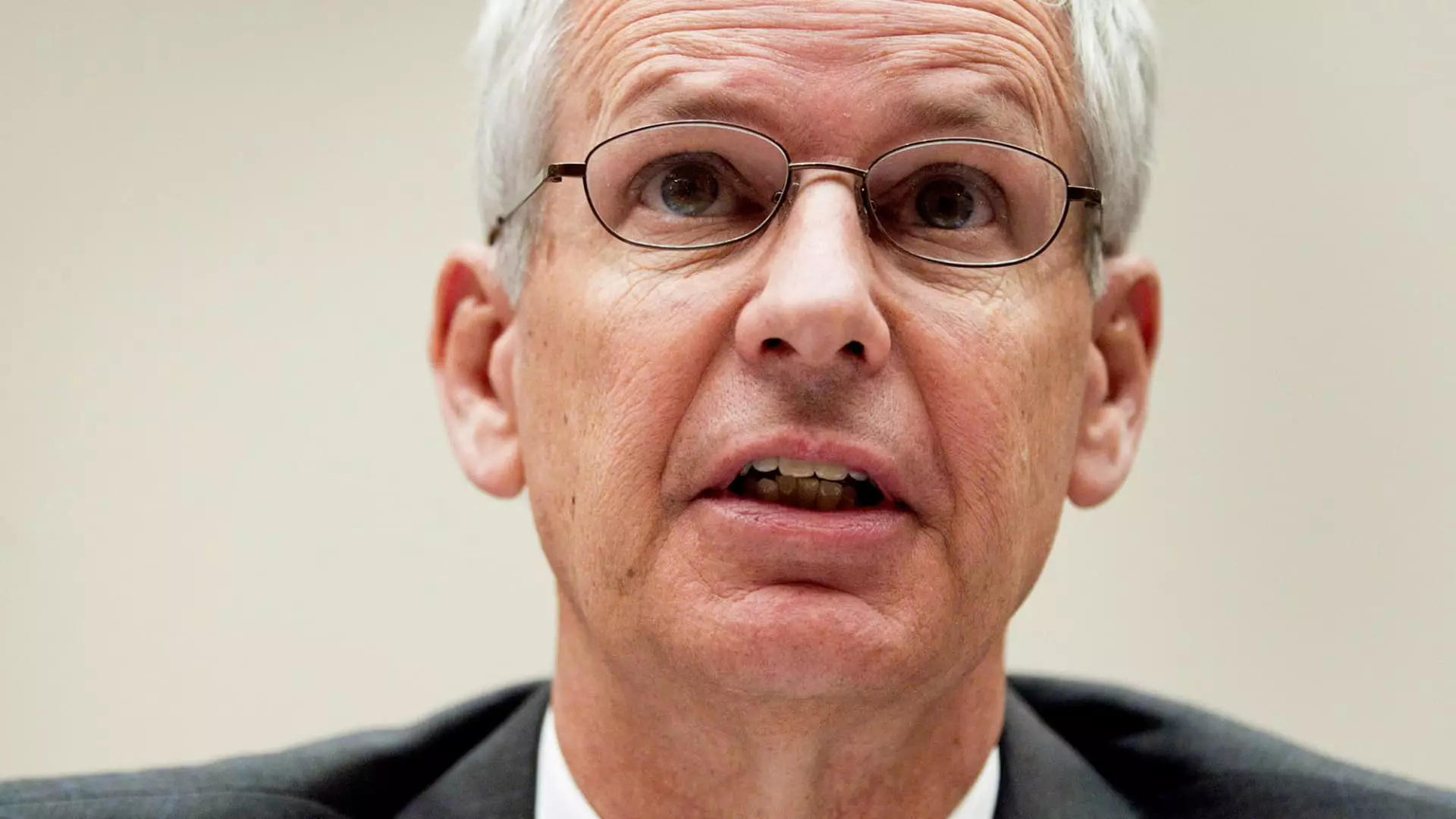Dish Network’s strategic aspirations over the last decade have drawn a curious parallel to the critically-divided finale of the iconic sitcom “Seinfeld.” Initially lauded for its groundbreaking narrative structure, “Seinfeld” ultimately left fans feeling unsatisfied as the characters’ arcs concluded without the anticipated resolution. Similarly, Dish Network, founded by Charlie Ergen, has traversed an intricate path that has culminated in what many view as an underwhelming conclusion to its own saga, marked by a dismal financial outlook and an urgent sell-off to DirecTV. The metaphor of the “Seinfeld” approach—where seemingly disconnected stories eventually converge—now resonates pointedly as Dish prepares for a final chapter rife with uncertainty.
In 2011, Ergen alluded to this narrative style during a call with analysts, suggesting that just as “Seinfeld” episodes eventually found a semblance of connection, Dish Network would reveal its own cohesive strategy over time. However, just as the beloved sitcom left audiences longing for more, Dish’s journey has turned into a cautionary tale reflective of a media environment that has radically transformed.
The company’s insistence on maintaining a traditional pay-TV model comes at a staggering cost, particularly in an era characterized by the rapid rise of streaming services. The dramatic shift in consumer preferences has resulted in millions of cancellations, with Dish and DirecTV collectively losing approximately 63% of their video subscribers since 2016. Commentary from EchoStar’s CEO, Hamid Akhavan, further emphasizes the startling reality; he notes the whole content-distribution landscape has been in a steep decline. The fall of Dish Network can be viewed as emblematic of an industry too slow to adapt, failing to navigate a future increasingly dominated by agile streaming platforms.
As the company sought to pivot from dish antennas to wireless signals, it grappled with a heavy burden of debt while its subscriber base continued to dwindle. Conversely, competitors like Comcast and Charter have embraced high-speed broadband, creating the necessary infrastructure to attract a modern audience.
The once-thriving enterprise value of Dish Network has nosedived, drawing stark contrasts to moments of grandfatherly aspirations. Discussions of a merger with DirecTV in 2014, which placed the combined market capitalization right around $68 billion, now seem like a distant memory as Dish flounders under the weight of over $9 billion in associated debt. The stark reality is that while DirecTV soared to a $49 billion acquisition by AT&T shortly after, Dish remains burdened by fading relevancy in an ever-evolving marketplace.
This astounding drop in value sends a clear message: sticking to outdated models can lead to catastrophic consequences. The urgency of EchoStar’s recent decision to dismantle its subsidiary echoes their desperation to unload the financial anchor of the satellite business before a $2 billion debt payment becomes due. Dish Network’s attempts to expand into telecommunications through the acquisition of Boost Mobile may have seemed prudent on paper, yet the intricate weave of mismanaged resources and distractions resulted in thwarted ambitions to create a nationwide wireless network.
In the narrative of Dish Network, one can’t help but see a glaring reflection of disappointment akin to the critical reception of “Seinfeld’s” series finale. While fans were left pondering the fate of their beloved characters, Wall Street now questions the viability of a company that had once been positioned to lead in the media space. The convergence of a stacked deck of regulatory hurdles, shifting consumer demands, and internal distractions has left Dish Network in a precarious balance, prompting its desperate search for answers.
Looking forward, it remains pivotal for industry leaders to heed the lessons drawn from Dish Network’s strategy. The need to reinvent, adapt, and embrace modern consumer habits cannot be overstated if other organizations aim to avoid a similar fate. Like the final curtain on a flawed sitcom, Dish’s descent serves as a stark reminder of the challenges inherent in navigating an industry defined by constant evolution.
As Dish’s journey crescendos towards an uncertain ending, one is left reflecting on not just what was lost but what could have been—a fitting ending for a narrative that has had as many twists and turns as any television show.

Leave a Reply